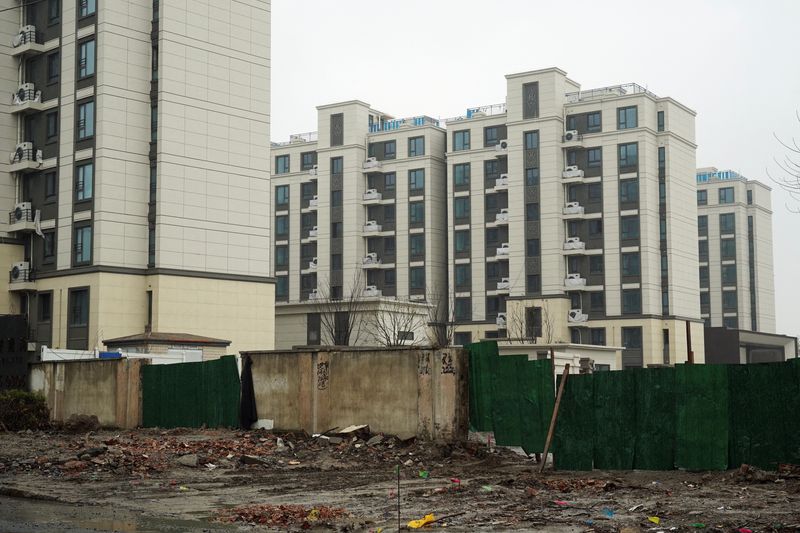By Liangping Gao and Ryan Woo
BEIJING (Reuters) - New home prices in China are likely to fall this year due to limited effect of ongoing government support measures, a Reuters poll showed, with economists predicting the ailing market will need more than a year to bottom out.
The poll, conducted Feb. 20-28, showed new home prices would decline 0.9% in 2024, versus 1.1% growth tipped in a previous poll in November. Prices are likely to grow 0.5% in 2025, versus 1.0% forecast in November.
The property sector was once a key pillar of the world's second-largest economy but has lurched from one crisis to another since 2021 after a regulatory crackdown on high leverage triggered a liquidity crisis.
Authorities have deployed policies to revive the sector, including the biggest-ever reduction in the benchmark mortgage rate in February, though analysts have seen limited impact.
"Progressive policy relaxation will reduce the market's sensitivity to policies, because homebuyers may worry that if new policies are introduced after purchasing a house, there will be a certain loss," said Fitch Bohua senior analyst Wang Xingping.
Most respondents in the poll expect the property sector to bottom out in one to three years, with some cities seeing gradual stabilisation by the end of 2024.
"There is still room for policies to be relaxed, such as the complete cancellation of purchase restrictions in tier-one and other core cities, further reductions in down payment ratios and loan interest rates," said Wang.
Property sales likely shrank 5.0% in 2024, unchanged from the previous poll, and investment was expected to fall 6.1% rather than 8.4% tipped in the earlier poll.
Overall demand has been sluggish, especially in smaller cities, while an increase in the number of second-hand homes for sale will also drive house prices downward this year, said Gao Yuhong, a manager at CSCI Pengyuan Credit Rating.

Asked about the biggest threat to the sector's outlook, economists cited overall weak confidence due to falling house prices, financial pressure on real estate firms in the short term, and high inventories and population decline in the long term.
(For other stories from the Reuters quarterly housing market polls, click here.)